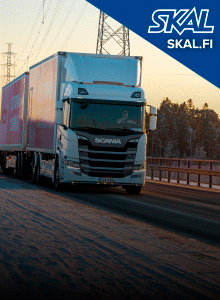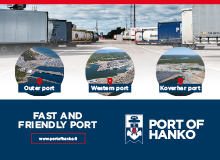- Luontiaika
- 23.07.2021 08:54
This news as featured on trans.info this week, stated that the legislation, which will come into force in September, will affect both Portuguese drivers and those working internationally. After the changes, such operations will have to be carried out by the consignor or the consignee employing trained staff for this purpose, according to the Spanish portal Diario di Transporte.
Exceptions will be made for stowage and securing operations where the driver should offer advice and intervene.
Loading and unloading of cargo directly by the driver will still be possible, but only in a few situations. These include removals and door-to-door transport and the carriage of fuel. This will also be possible in the case of dangerous goods, provided that the driver is trained for this purpose and is provided with the appropriate equipment. Failure to comply will be punished with a fine of €15,000, the carriers’ organisation Fenadismer reports.
ITOY Colleague Ricardo Carvalho, Portugal’s jury member added: “This is what is happening and no one is talking about this, not even the truck companies. In 2019, an agreement on loading and unloading was signed in which transport and logistics and distribution companies assumed that these tasks were not the responsibility of drivers, albeit with some exceptions. But, because no one was really doing this, government set a new decree-law.
The decree-law that sets new rules on loading and unloading in road transport of goods, but it only comes into force in mid-September. Thus, and in essence, the new rules limit the maximum waiting time for loading or unloading to two hours, the time being counted “from the time previously agreed or scheduled between the shipper, the recipient and the carrier” or , in case there was no appointment, “from the time of registration of the vehicle in the system of the shipper or recipient, except for deliveries to stores”.
In case of delays, carriers, shippers, consignors or consignees are entitled to compensation, payable by the person responsible for the delay.
Loading and unloading operations must be carried out by the shippers or recipients. If they are the responsibility of the carrier, “the carrier must use a worker, other than a driver, who is qualified and trained for the purpose”.
Drivers may only be called to carry out loading and unloading, under the terms of the applicable collective contract, “in the distribution of goods, being understood as such the distribution of goods from the central warehouses to the respective stores, removals and door-to-door” (and even so with the presence of another person) and “for safety reasons, depending on the specific training received and the use of specific equipment, [in the case of] transportation of fuel, bulk and car carriers, without prejudice to specific provisions on goods containing dangerous materials”.
In case of non-compliance with the rules, fines of between €1,250 and €15,000 are foreseen, depending on whether the person is a natural or legal person.”
Spain wants to ban forcing drivers to unload and load
The changes introduced in Portugal have been noticed by the Spanish transport associations, which have been pushing for a similar ban for drivers in their country for years. One of the associations there, Astic, wants to call on Raquel Sánchez, in her capacity as Minister of Transport, Mobility & Urbanisation, to introduce similar legislation.
According to data cited by Diario di Transporte, 70% of truck drivers are involved in the loading and unloading of goods transported in Spain. These activities, the portal notes, are not related to their profession and the lack of a ban leads to abuse and fatigue for truckers. This in turn can result in accidents on the road and during the actual unloading and loading.
The portal notes that this affects both the drivers, who take sick leave, and the companies that employ them, which “see their costs rise.”
Ramón Valdivia, CEO of Astic, notes that Spain, which has a shortage of 15,000 professional drivers, must try to make the trucking profession more attractive to potential job candidates, the portal quotes an Astic representative as saying. It also points out that banning loading and unloading by drivers could attract more young people into the workforce.
The IRU, the Global Shippers Alliance (GSA) and the International Transport Workers’ Federation are of the same opinion and have proposed the creation of a so-called Drivers’ Charter. The initiative, is intended to improve the standard of work for truckers. The Charter requires a commitment from each party involved in the supply chain. Shippers, carriers and drivers themselves are included. One of the demands is to “ensure fast and safe unloading and loading (e.g. by providing documentation on time, keeping loading operations to a minimum and giving clear instructions on how to move around the facility).”
(fleet Transport)























